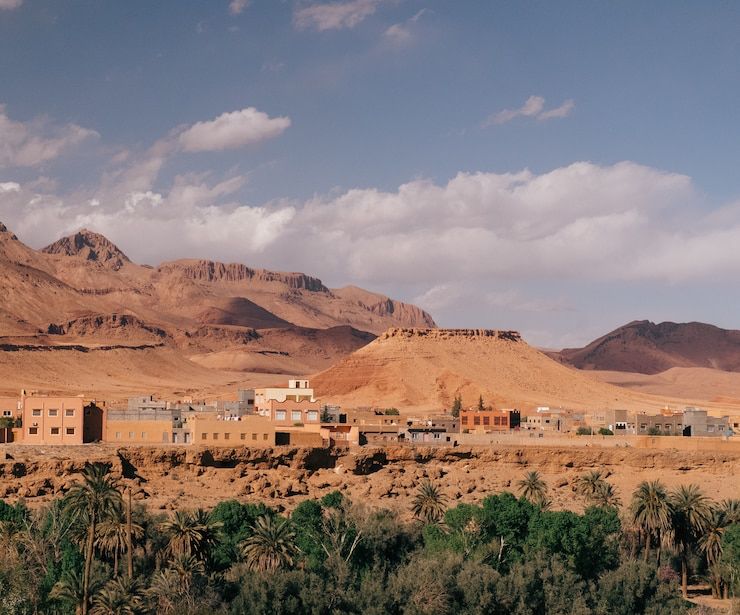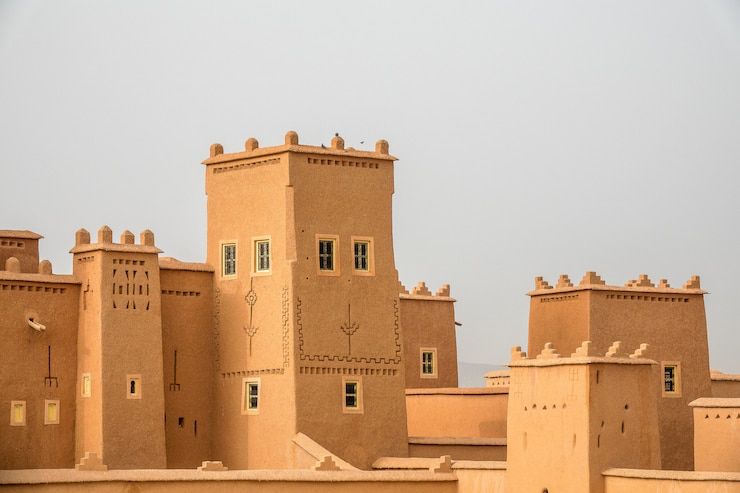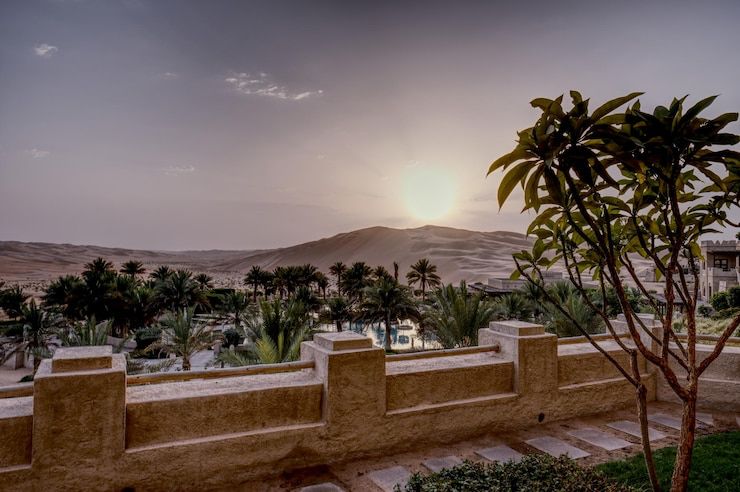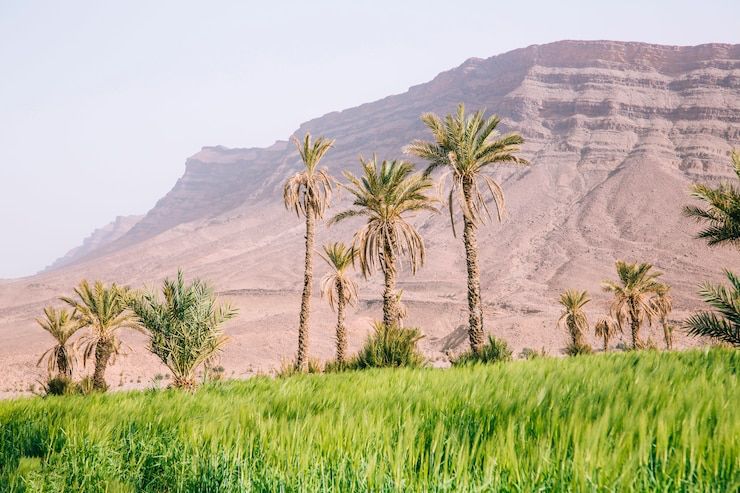Table of Contents
How to Explore Dammam: A Complete Guide
Situated on the Arabian desert, Dammam is not just a city – it is an example of tradition and beauty. Known as the capital of Saudi Arabia’s Eastern Province and a central hub for industry, culture and commerce, Dammam quietly balances its rapid modernisation with a deep connection to heritage and hospitality.
An Entryway to the Gulf

Together with Dhahran and Khobar, Dammam makes up a tri-city area, forming one of the Kingdom’s most economically significant metropolitan areas. Dammam, often known as the Gateway to the Gulf, is situated around 400 kilometers east of Riyadh. Because to its advantageous coastal location, it is a major player in transportation, trade, and oil exports.
The largest port in the Persian Gulf and the second busiest port in Saudi Arabia is King Abdulaziz Sea Port, which is situated near Dammam. It is essential to the import and export industry and connects the Kingdom to important international shipping lanes. Dammam is connected to numerous international locations by the nearby King Fahd International Airport, which is among the biggest in the world by land area.
Dammam is more than simply business, though. There is a city full of culture, stories, and a strong sense of identity beyond the oil fields and logistics.
A City with Profound History

The region that is presently Dammam was once a fishing and pearl-diving town. The discovery of enormous oil deposits in the neighboring city of Dhahran in the 1930s and 1940s marked the beginning of the city’s contemporary development. The world’s and the region’s destiny was altered by this event. Aramco, the most valuable oil firm in the world, set up shop in the Eastern Province, which soon became the epicenter of Saudi Arabia’s burgeoning oil industry.
Dammam has maintained a lot of its cultural identity in spite of its quick industrial development. Everyday life includes warm welcomes, Arabic coffee served with dates, and traditional marketplaces (souqs). Locals are proud of how their city has changed and welcome guests with sincerity.
Community Life and the Cultural Pulse

Dammam’s diversity is among its most remarkable features. Dammam has a multicultural spirit because it is home to thousands of expats in addition to its native population. Arabic, English, Urdu, Tagalog, and other languages are spoken in every area. Indian curries, Filipino adobo, Lebanese shawarma, and traditional Saudi kabsa and seafood are all served in restaurants.
Visit Heritage Village, a quaint museum and restaurant combination that provides information on Saudi Arabia’s customs, crafts, and way of life, for a sample of the native way of life. Constructed using traditional Najdi architecture, the Village displays historic tools, fabrics, and relics. The on-site restaurant offers traditional Saudi cuisine in a setting that transports guests back in time.
The city also fosters creativity and the arts. Dammam’s King Abdulaziz Center for World Culture (Ithra)—though technically in Dhahran—is a landmark that draws artists, intellectuals, and dreamers from across the Kingdom and beyond. With galleries, cinemas, libraries, and interactive exhibits, it’s a cultural beacon not just for the region, but for the Arab world.
Outdoor Recreation and Corniche Life

The Dammam Corniche is a popular getaway spot for locals. This seaside promenade, which stretches along the Arabian Gulf, is lined with wide pathways, cafes, contemporary sculptures, and green gardens. On weekends, families come here for picnics, kids play outside, and joggers take in the sea breeze. An especially picturesque location for fishing, taking pictures, or watching a peaceful sunset is Al Marjan Island, a man-made island that is connected to the Corniche by a causeway.
Typically, Dammam experiences scorching summers and moderate winters due to its desert climate. However, the sea air provides a welcome counterbalance, particularly during the cooler months when the city’s outdoor activities increase. Among the most popular activities for thrill-seekers are jet skiing, boat cruises, and water sports.
A City of Innovation and Education
Dammam is also an educational and medical center in the region. Imam Abdulrahman Bin Faisal University offers programs in medicine, engineering, and humanities, attracting students from across the Kingdom. Nearby, King Fahd University of Petroleum and Minerals (KFUPM) in Dhahran is one of the leading technical institutions in the Middle East, with a reputation for producing highly skilled graduates in energy, engineering, and science.
The city is also home to some of the region’s top hospitals and medical research centers. King Fahd Specialist Hospital and Dammam Medical Complex offer advanced care and services, contributing to the region’s healthcare excellence.
Shopping, Dining, and Modern Comforts
For those who enjoy shopping, Dammam doesn’t disappoint. The city hosts several malls such as Othaim Mall, Marina Mall, and Dharan Mall, where visitors can shop international brands, dine in diverse restaurants, or enjoy family entertainment. Still, many locals prefer the experience of souqs—traditional markets where you can find spices, perfumes, textiles, and handcrafted goods.
Dining in Dammam is a delightful adventure. From waterfront seafood grills to trendy cafes serving artisanal coffee, the city’s food scene is varied and vibrant. Try a traditional fish dish like samak mashwi (grilled fish) or dive into mutabbaq, a savory stuffed pancake sold by street vendors. And don’t forget the gahwa (Arabic coffee)—a symbol of hospitality served with dates and heartfelt conversation.
A City Looking Forward
Dammam, like much of Saudi Arabia, is undergoing a transformation under Vision 2030, the Kingdom’s ambitious roadmap for a diversified and modern future. Infrastructure is expanding, public spaces are being redeveloped, and tourism is increasingly encouraged. New events, festivals, and exhibitions now attract visitors year-round.
The people of Dammam take pride in this progress. Yet, they also value their city’s character—its welcoming nature, its balance of tradition and modernity, and the quiet pride that defines its streets.
Final Thoughts
Dammam is not a city that shouts—it invites. It welcomes you with a sea breeze, a smile, and an open road. Whether you’re visiting for business, family, or exploration, the city offers a genuine, grounded experience. It’s a place where innovation grows from heritage, and where every sunset over the Gulf reminds you that even in rapid change, beauty can be found in stillness.
In the end, Dammam is more than a map dot—it’s a living, breathing city full of stories waiting to be discovered. From the hum of the port to the laughter on the Corniche, from the classrooms of its universities to the aromas of its kitchens, Dammam reflects the best of Saudi Arabia’s Eastern Province: welcoming, evolving, and deeply rooted in pride.
🇸🇦 Dammam Tourist Travel Rules & Regulations (Saudi Arabia)
Planning a trip to Dammam? That’s a great idea! This coastal gem in Saudi Arabia’s Eastern Province offers culture, relaxation, and a warm welcome. But before packing your bags, it’s important to understand the travel rules and cultural norms in Saudi Arabia. Here’s what you need to know to enjoy your visit to Dammam smoothly and respectfully.
1. Visa Requirements
Saudi Arabia has made it easier than ever for tourists to visit:
- eVisa: Citizens from over 60 countries can apply online for a tourist eVisa, valid for one year with multiple entries (each stay up to 90 days).
- On-arrival visa: Some nationalities can get a visa on arrival at the airport.
- Umrah: Tourist visa holders are also allowed to perform Umrah (except during Hajj season).
👉 Apply at: https://visa.visitsaudi.com
2. COVID-19 Rules (as of 2025)
Most COVID-19 restrictions have been lifted, but always check the latest updates before you fly:
- No PCR test or vaccination required to enter.
- Health insurance that covers COVID-19 is mandatory (usually included with the tourist visa).
3. Cultural and Dress Etiquette
Saudi Arabia is a conservative country, and Dammam reflects that respectful tone, especially in public areas:
- Dress modestly: Men should avoid shorts; women are not required to wear an abaya but should dress conservatively (long skirts/pants, covered shoulders).
- Public behavior: Avoid public displays of affection. Loud or disrespectful behavior can draw negative attention.
- Prayer times: During the five daily prayers, some shops and services may temporarily pause. Plan around it, especially in traditional areas.
4. Alcohol and Drugs
- Strictly prohibited: Alcohol and drugs are illegal. Possession or use can lead to serious penalties including fines, imprisonment, or deportation.
- Do not attempt to bring alcohol or banned substances into the country.
5. Gender Interaction and Public Spaces
- Unmarried couples are now allowed to stay in hotels together, and Saudi Arabia has relaxed many social restrictions in recent years.
- However, public decorum is still expected. Always be respectful in your interactions.
6. Photography and Drones
- It’s fine to take photos in public areas, especially tourist spots and nature scenes, but:
- Avoid photographing people without permission, especially women.
- Do not photograph government buildings, military sites, or oil facilities.
- Drones require special permits—don’t bring one unless you’ve registered it in advance.
7. Currency and Payments
- The local currency is the Saudi Riyal (SAR).
- Credit and debit cards are widely accepted in Dammam.
- Apple Pay and STC Pay are popular digital payment methods.
- Always keep some cash on hand for taxis, local markets, or smaller shops.
8. Transport and Car Rental
- Taxis and ride-hailing apps like Uber and Careem are available.
- If you plan to drive, you can use an international driving license (IDP) to rent a car.
- Women are allowed to drive and rent vehicles freely.
9. Safety and Emergency
Dammam is considered a very safe city for tourists:
- Emergency number: 999 (police), 997 (ambulance), 998 (fire).
- Tourist Police and public security officers are helpful and speak basic English.
10. Friday Closures
- Friday is a holy day in Islam. Many shops and offices are closed in the morning and reopen after Friday prayers (around 1:30 PM).
- Tourist areas like malls, cafes, and Corniche parks usually stay open or reopen later in the day.
11. Local Customs to Respect
- Greet with “Salam Alaikum” (peace be upon you) – it’s appreciated!
- When offered dates and Arabic coffee (gahwa), accept graciously—it’s a symbol of hospitality.
- Use your right hand when eating, greeting, or giving items.
Final Tip
Dammam is a beautiful blend of tradition and modernity. Tourists are very welcome, and the city is becoming increasingly open and international. Following these simple rules will help you enjoy the rich culture, coastal beauty, and warm hospitality that make Dammam a special place to visit.

